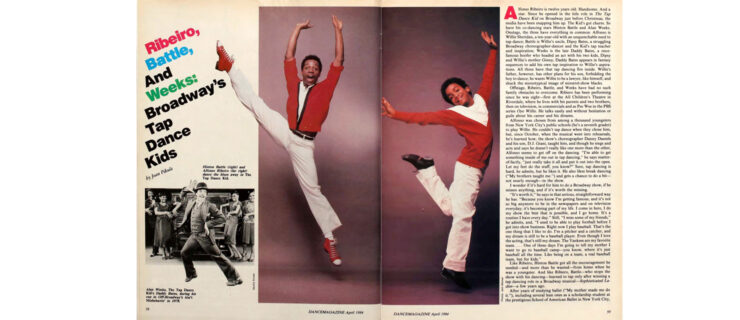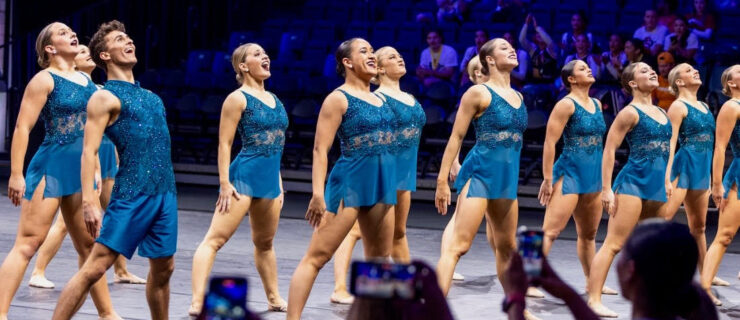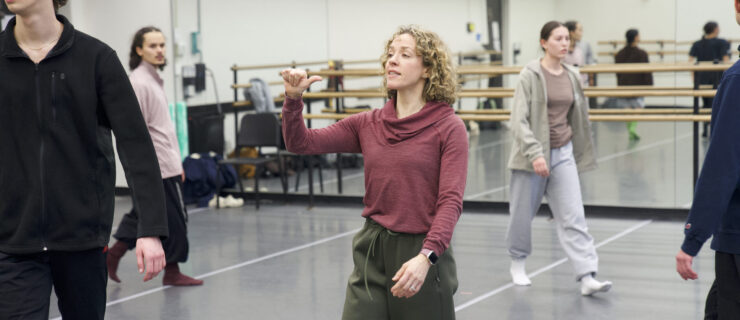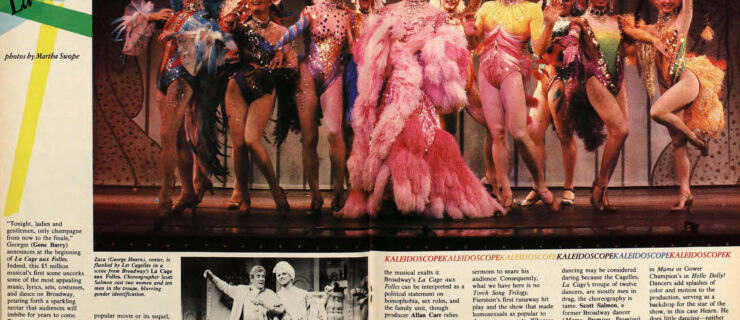Transitions
Deaths
Georgina Parkinson (1938–2009)
A principal with The Royal Ballet in the 1960s and coach and ballet mistress at American Ballet Theatre for the past 30-plus years, Georgina Parkinson died in December from complications of cancer.
As a dancer Parkinson was striking, adept, and accomplished—sharing stage and studio with legends from Kenneth MacMillan and Frederick Ashton to Antoinette Sibley and Rudolf Nureyev. With her unique blend of wit, candor, and style, she guided innumerable dancers at ABT and elsewhere.
Born in Brighton, England, Parkinson was accepted into the Sadler’s Wells Ballet School at age 11. The Royal Ballet offered her a contract four years later, in 1957, and she became a principal in 1962.
Although Parkinson danced roles like Odette/Odile, she felt most suited to 20th-century narrative ballets. Her breakthrough came as La Garçonne (The Girl in Blue) in Nijinska’s Les Biches, which was restaged for The Royal Ballet in 1964. “It suited her to perfection,” says choreographer Ronald Hynd. “It was technically very difficult. She was chic and slightly androgynous.” Parkin-son originated roles in ballets by Cranko and MacMillan, including Rosaline in the latter’s Romeo and Juliet (she later went on to dance a dramatic Juliet and to coach the role).
Parkinson came to the U.S. in MacMillan’s stead to coach Mikhail Baryshnikov and Leslie Browne in Romeo and Juliet for the film The Turning Point and was then invited to teach ABT company class. In 1980, when Baryshnikov became artistic director of ABT, he offered her a full-time position as ballet mistress.
Although she continued to perform with ABT in roles such as Lady Capulet and the Stepmother in de Mille’s Fall River Legend, Parkinson’s primary responsibility was coaching the company’s dancers. From Cynthia Harvey to Julie Kent, they soaked up her knowledge. Always a perfectionist—every finger and head placement counted—she nevertheless supported her dancers through thick and thin, giving them room to make mistakes and grow. And she always had a pithy one-liner at the ready to defuse dancers’ nerves and push them forward: “It’s only ballet, darling,” she might say in her crisp British accent. “Go on, get on with it.”
“She knew how to say different things to different people,” says Monica Mason. “How tough to be with some and gentle with others. Yet she never gift-wrapped anything. She was always honest.”
Parkinson is survived by her husband, photographer Roy Round; her son, Tobias Round; and her daughter-in-law, Leanne Benjamin (see “Long May They Reign,” Jan.). ABT will honor her with a commemorative evening at The Joyce Theater on March 29. —Kate Lydon
Pamela Joan Raff (1952–2009)
The Boston-area jazz tap dancer, teacher, and choreographer Pam Raff died in November after a long illness. She is remembered for her feminine presence and her devotion to her students. Tap matriarch Dianne Walker, who worked closely with Raff, recalls Raff as “a lyrical, sweet-faced, introspective dancer, really pure in terms of the art form. I could cheat a step. To Pam, that was a mortal sin.”
Born in Oxford, England, and raised in Morristown, NJ, Raff studied tap from age 3, later adding ballet, modern, and belly dance. She settled in Boston after briefly attending American University and traveling the country. She began studying in 1978 at Star Steps Studio, Roxbury, with the shaggy-legged and idiosyncratic tapper Leon Collins, a legendary member of the Copasetics. She absorbed Collins’ traditional riffs and rhythms, and with Walker, C. B. Hetherington, and their mentor Collins formed Collins and Company in 1982. Raff and Walker continued to teach at Collins’ Brookline studio after his death in 1985. By 1995 Raff was teaching in her own space. She also taught at Brandeis, Boston, and Roger Williams Universities, and Mt. Holyoke College.
A highly musical dancer, Raff released “Feet First,” the first full-length, digital recording of jazz tapping in 1994.
Raff was a beloved performer and teacher, indispensable to Boston’s dance community. Hetherington says, “As a rather shy woman, she had a mysterious strength and power.” —Iris Fanger
Photo of Georgina Parkinson from the
DM Archives




